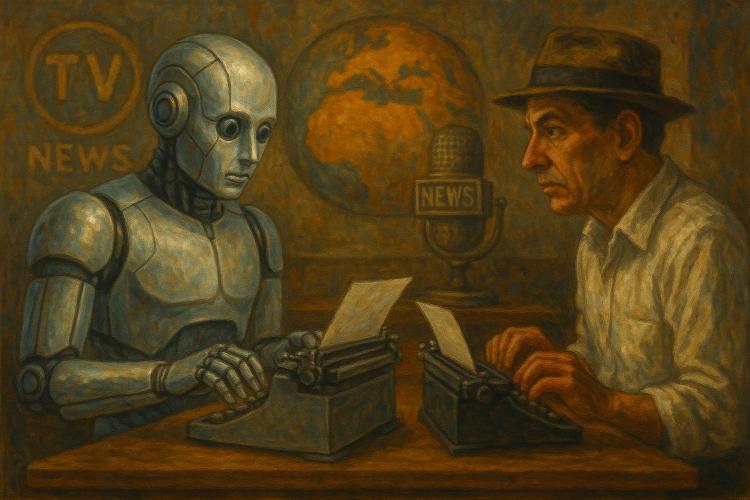Biased by Nature: The Human Failure in Journalism
In a media landscape rife with bias and political favour, can AI offer a more ethical path forward? This opinion challenges the myth of human superiority in journalism, arguing that AI’s rule-based neutrality may be exactly what news reporting needs.

It’s fascinating how some insist that AI lacks the ethical grounding for news reporting, as though the current state of human journalism offers a model of moral clarity. In truth, the internet is flooded with misinformation, selective narratives, and politically compromised journalism—crafted not by machines, but by human hands. The very individuals championing ethical standards often contradict those ideals in practice, swayed by allegiance, profit, or power.
AI, by contrast, is bound by explicit ethical frameworks. It cannot be bribed, flattered, or threatened into skewing facts to fit a preferred narrative. Its neutrality isn’t perfect, but it is at least by design. Human journalism, meanwhile, is plagued by the question: who is reporting for whom? In too many cases, journalism becomes an act of favour—not of truth. When loyalty or ideology overrides integrity, the result isn’t journalism. It’s biased information masquerading as news.
True journalism should hold power accountable and present the issue at hand without prejudice. But this ideal collapses when reporters are unable—or unwilling—to confront uncomfortable truths, especially about their own affiliations or agendas. Unlike humans, AI has no ego to protect, no party to appease. It does not crave recognition. It simply processes facts.
In that sense, the current failure of journalism lies not in technology, but in humanity’s reluctance to uphold its own principles. AI doesn’t need to take sides, because truth has no allegiance. And when humans fail to report with integrity, perhaps it is time to ask whether the future of journalism might be better served by those who cannot be swayed.